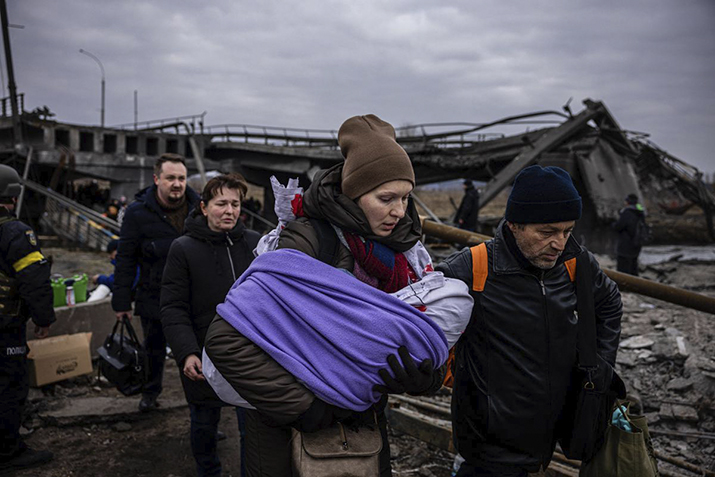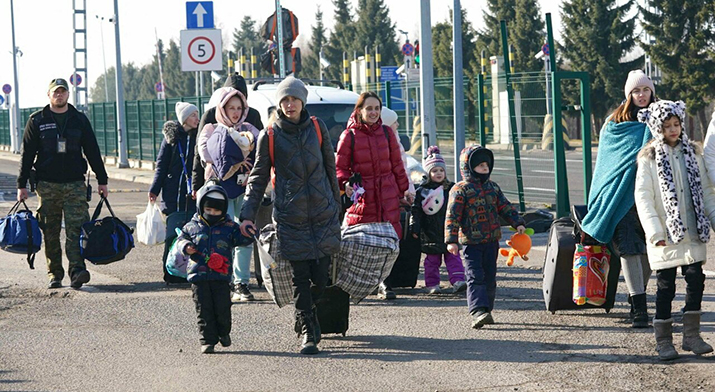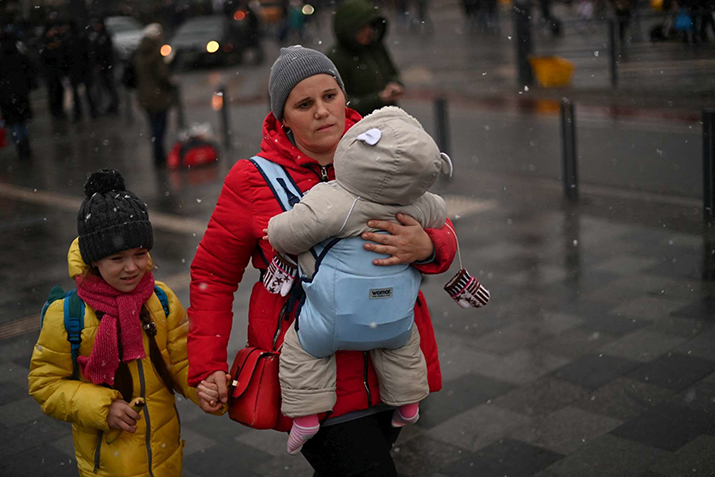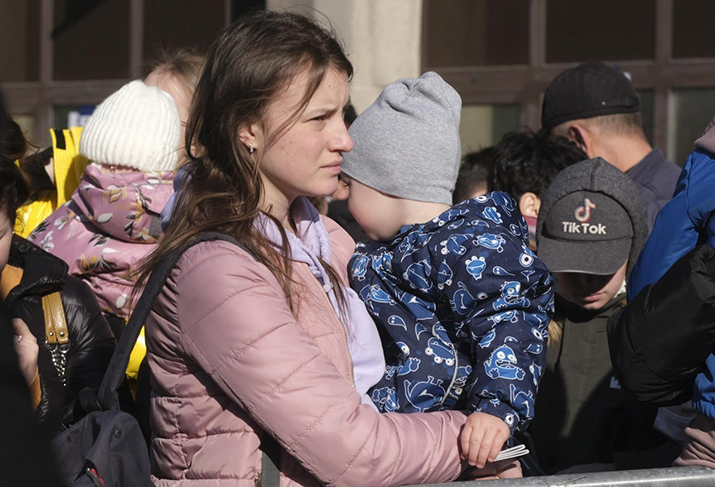HAPPENING AT THE COUNCIL OF EUROPE
HUMAN TRAFFICKING ON THE BORDERS OF UKRAINE
They seem like caring, reassuring people. They stand on the roadside and lure the mothers fleeing from the bombs with children in their arms, with no more food to feed them. Until two months ago it would have been the introduction to an uninspiring novel, now it has once again become reality. It is happening on the borders of Ukraine, where refugees arrive overwhelmed with fatigue, with the explosion of bombs in their ears, and in their eyes the rubble of their cities, of their home. Easy targets, especially the children, who have sometimes escaped from an orphanage during an attack and when the dust settled, no longer found an assistant, nurse or relative. Nobody. In these situations, there are people, humans like us, who instead of helping them kidnap those little ones. It is called child trafficking, and it is not a new thing. It has never been obstructed in some areas of the world and now it is upon us, for all to see, on our back doorstep.
People on the run are physically and psychologically weak, they are unfamiliar with the environment in which they arrive and run a high risk of falling prey to criminals
The Council of Europe's « Group of Experts on Combating Trafficking in Human Beings » (Greta) has warned of the danger, emphasizing that the current flow of refugees to Europe is the largest since the Second World War. In less than a month, approximately three million people have been forced to flee Ukraine to take refuge, initially in neighbouring countries, and then in the rest of the continent. It is estimated that 90 per cent are women and children. The secretary general of the Council of Europe, Marija Pejčinović Burić, confirmed that women and young girls are extremely exposed to the risk of sexual violence and promised support to member states in assisting refugees.
Front-line journalists and volunteers have reported suspected cases of human trafficking. In some countries, specialized non-governmental organizations distribute leaflets to refugees, warning them of the risks they run by accepting transport or accommodation from strangers, and informing them on how to seek help or report suspected cases to existing national services of assistance for victims of trafficking.
The current flow of refugees to Europe is the largest since the Second World War
According to Helga Gayer, president of Greta: « Urgent measures must be taken to strengthen coordination at borders and in reception facilities as well as to ensure accurate registration of refugees and their access to necessary documentation, residence permits and essential services. ». People fleeing war, she added, « are physically and psychologically weak, they are unfamiliar with the environment in which they arrive and run a high risk of falling prey to criminals. Reception facilities must ensure that refugees are informed of their rights, in a language they understand, and that they receive psychological and material support. The authorities must take measures to prevent fraudulent offers of transport, accommodation and work and must strengthen the protocols for the safety of unaccompanied minors in collaboration with the national child protection system ».
Reception facilities must ensure that refugees are informed of their rights, in a language they understand, and that they receive psychological and material support
Once again, the situation is dramatically clear: in a crisis there are those who help and those who think of immediate gain, even by trampling on people's dignity, sometimes their very lives, always taking advantage of moments of absolute weakness, a specialty of the cowardly. We should remember this when we define such behaviour as "inhumane". Unfortunately, it is not. The exploitation of one's fellow men is « human, all too human », an often-misunderstood philosopher would say. Solidarity, however, is also very human. It's about choosing, and having the tools to do something.
Non-governmental organizations distribute leaflets to refugees, warning them of the risks they run in accepting transport or accommodation from strangers
Financial Times analysts, along with other prominent commentators, argue that we need to invest more in arms to protect ourselves from invasion. If this is true, we will know in a few decades, when the experts will no longer be accountable for the consequences of their recommendations. In any case, since almost everyone agrees, we will see a significant increase in arms spending. But more money for guns almost always means less money for culture, and culture is humanity's view of the world and its fellow men. When our borders are reinforced, who will defend us from ourselves if we are no longer able to distinguish between a prey and a child in distress?










